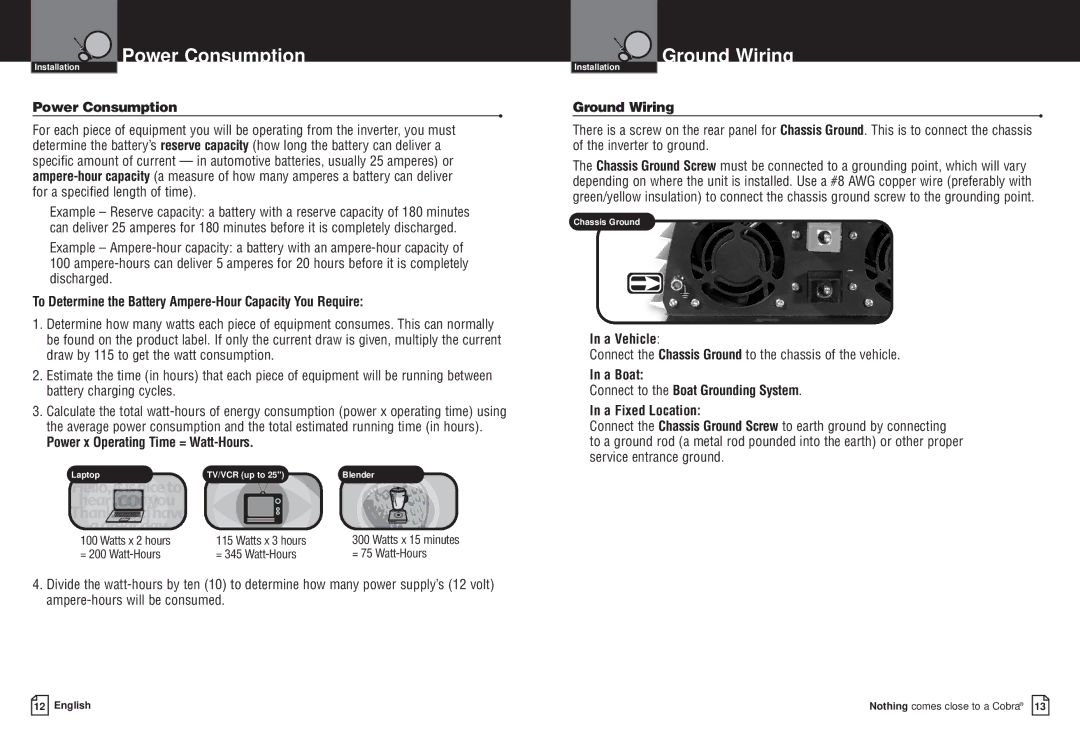
Power Consumption
Installation
Power Consumption
•
For each piece of equipment you will be operating from the inverter, you must determine the battery’s reserve capacity (how long the battery can deliver a specific amount of current — in automotive batteries, usually 25 amperes) or
Example – Reserve capacity: a battery with a reserve capacity of 180 minutes can deliver 25 amperes for 180 minutes before it is completely discharged.
Example –
To Determine the Battery Ampere-Hour Capacity You Require:
1.Determine how many watts each piece of equipment consumes. This can normally be found on the product label. If only the current draw is given, multiply the current draw by 115 to get the watt consumption.
2.Estimate the time (in hours) that each piece of equipment will be running between battery charging cycles.
3.Calculate the total
Power x Operating Time = Watt-Hours.
LaptopTV/VCR (up to 25")Blender
100 Watts x 2 hours | 115 Watts x 3 hours | 300 Watts x 15 minutes |
= 200 | = 345 | = 75 |
4.Divide the
12 English
Ground Wiring
Installation
Ground Wiring
•
There is a screw on the rear panel for Chassis Ground. This is to connect the chassis of the inverter to ground.
The Chassis Ground Screw must be connected to a grounding point, which will vary depending on where the unit is installed. Use a #8 AWG copper wire (preferably with green/yellow insulation) to connect the chassis ground screw to the grounding point.
Chassis Ground
In a Vehicle:
Connect the Chassis Ground to the chassis of the vehicle.
In a Boat:
Connect to the Boat Grounding System.
In a Fixed Location:
Connect the Chassis Ground Screw to earth ground by connecting
to a ground rod (a metal rod pounded into the earth) or other proper service entrance ground.
Nothing comes close to a Cobra® 13
